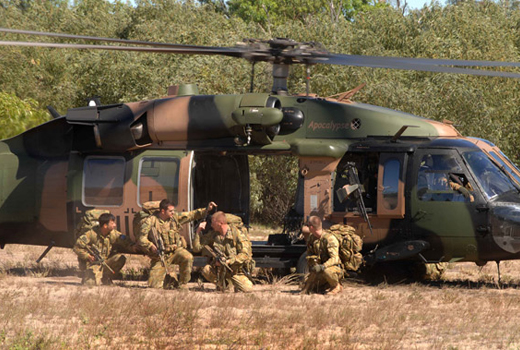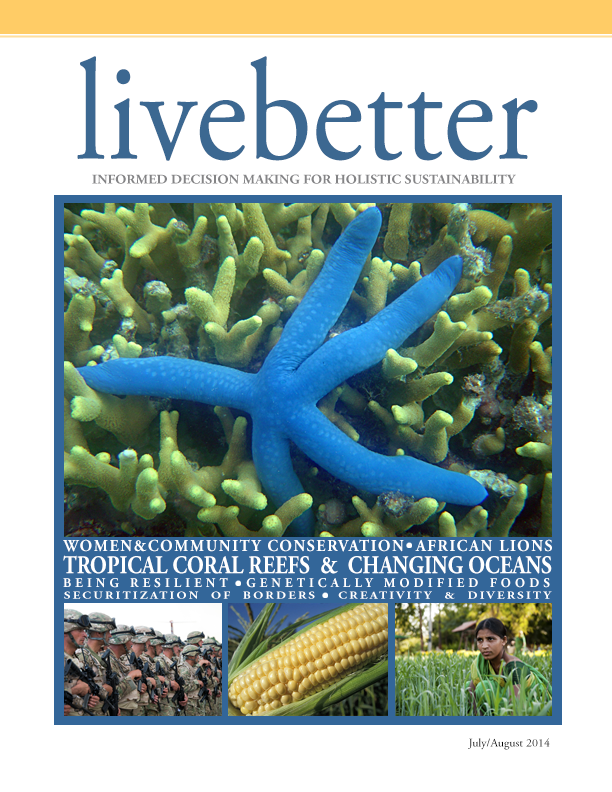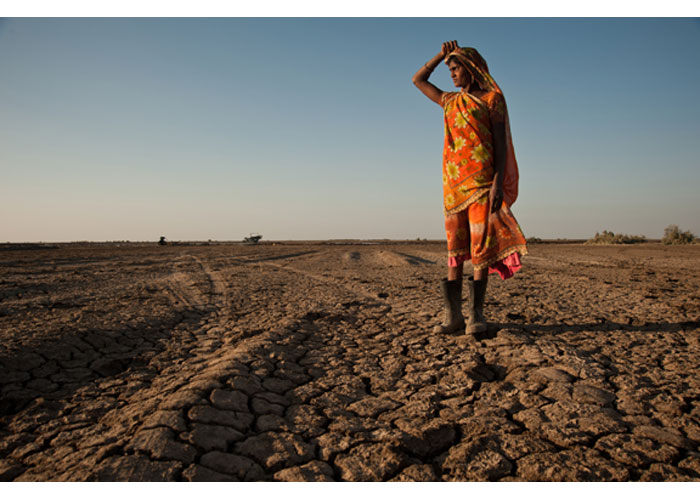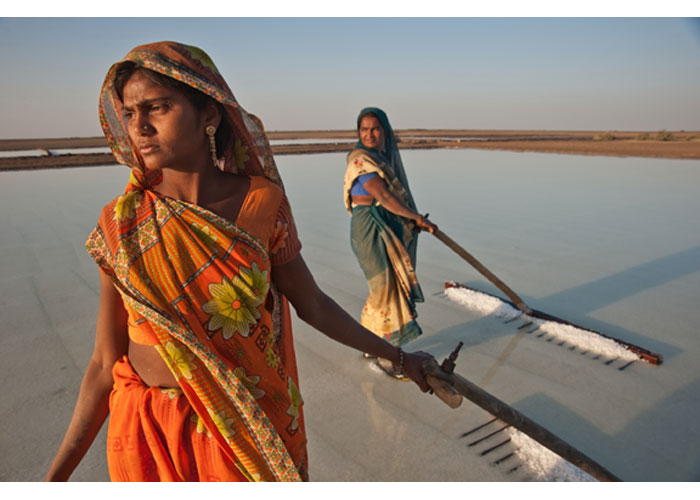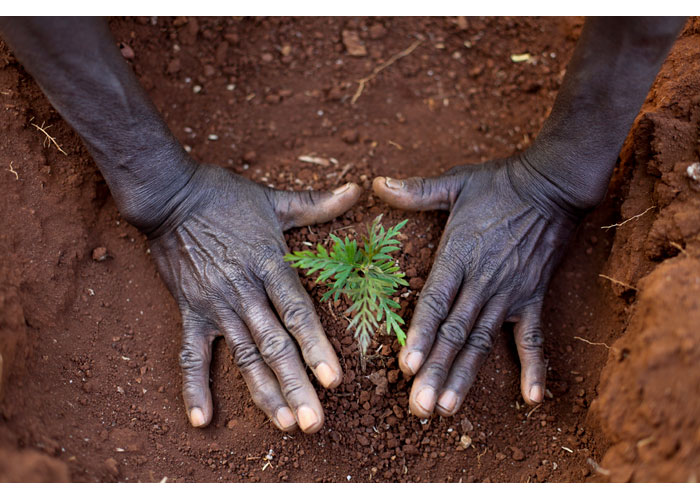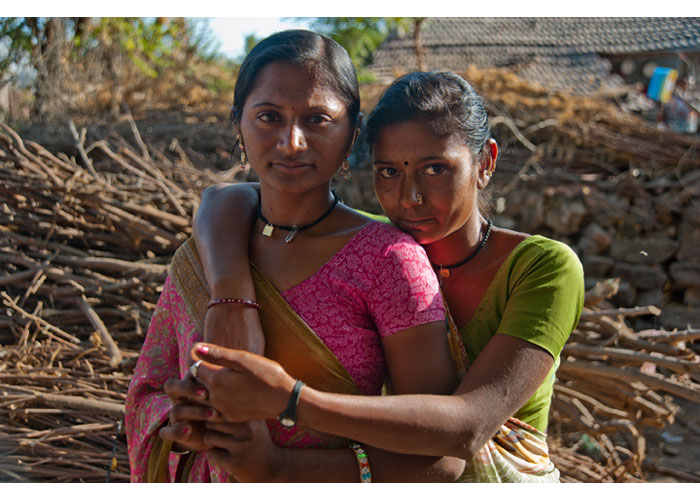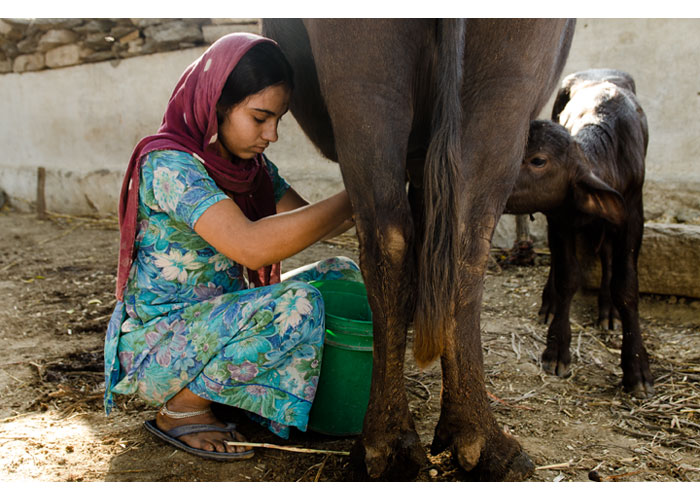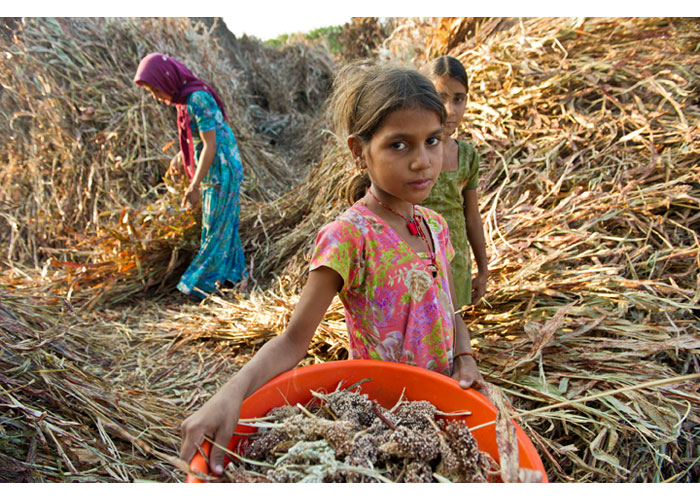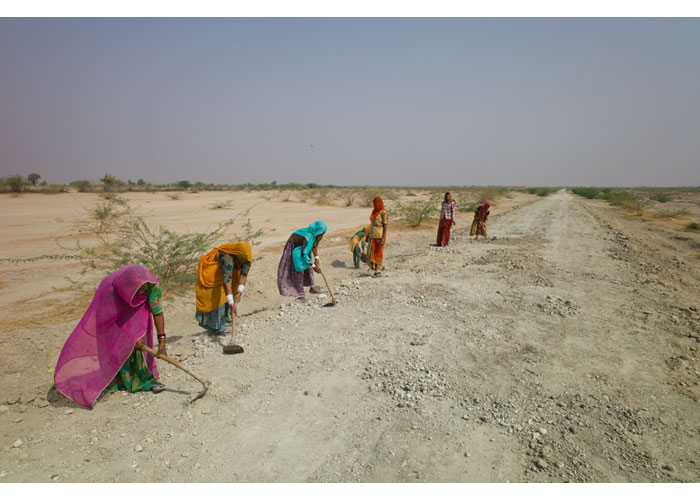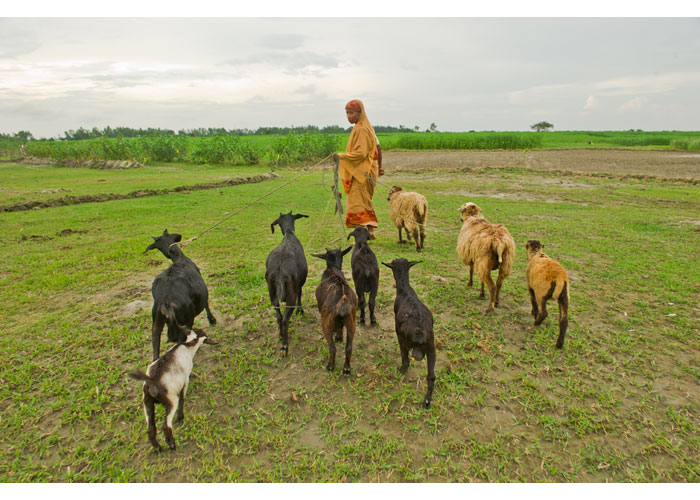The Silent Abuse of War: Hearing & Helping Those Who Serve
Iwrite as the mother of an ex-Army son and a person concerned about our returning military service men and women both here, in Australia, and overseas. It has become apparent to many that the toll on these people has been great. Australia, like America, is experiencing an increase in suicide, depression, alcohol abuse and post-traumatic stress upon our children’s, family members’ and friends’ return. After witnessing it personally and hearing about some of my son’s friends and their problems months after coming home, I could see a direct correlation with my background. I’ve never been to war; but I survived a terribly abusive childhood, which left much damage. Throughout the years, I’ve found ways to heal using many different techniques.
In my mind, our Soldiers, Airmen, Marines and Sailors are silent victims of abuse. It may not have been at home like me, but all the hallmarks of abuse are present. While deployed during armed conflict, these service people feared for their lives and the lives of others, thus enduring much mental abuse simply living day after day in this heightened state. It’s much like living in a home with an abuser – never knowing when he or she is going to explode in your face. The threat is omnipresent, 24 hours per day, seven days per week, and the impact on the body is enormous.
Verbal abuse is also ever present as it can come from either those we’re trying to help or from authority figures. This type of abuse is also difficult to endure, especially when we can’t respond. The latter requires us to lock down our emotions just to cope. Our words are swallowed, and we hold onto our feelings. Physical abuse is also a commonality. Whether you’re in danger of being hurt by your dad or an out-of-control enemy, we all respond the same way. We put our feelings away so we can get through the ordeal. Physical abuse marks the body; however, it also leaves marks on the inside. It’s a dual abuse.
Emotional abuse happens when we have to hold our feelings in check. In these situations, our feelings are not honoured. Basically, we need to put up and shut up because when you live in an abusive situation, keeping the peace can literally save your life. Abuse of all kinds brings with it disconnection; after a few terrible episodes we numb out in an effort to function. With no way to escape, the only way out it is to shut down and step out. At the time this becomes a useful strategy, for as soon as the abuse begins we go to the other place.
It matters not whether your war is at home or in an international conflict zone, threads of abuse are similar. Now, I don’t wish to lessen or to dishonour the experiences soldiers have endured. Unless we’ve walked in their shoes, we can have no idea of their journey. I simply want people to look at this ongoing problem with new eyes. Abuse damages the body, and it damages the soul. That’s where we need to focus. Military service people and abused people both learn how to shut down. And, it’s the “shutdown” that holds emotions inside. This brings about considerable feelings of isolation like living behind a big wall of glass unable to reach others and unable to feel love coming in from others. That’s the tragedy of abuse; it’s the disconnection from all we love.
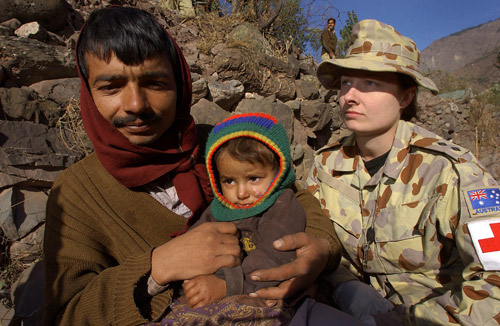
Courtesy Image: Commonwealth of Australia 2013 | Lieutenant Tamara Lee examines patients at the Australian medical centre in the earthquake-devastated town of Dhanni in Pakistan.
The most problematic emotions from both situations are fear, anxiety, anger and sorrow. Fear is extremely corrosive for the body. Left unresolved, it can paralyse our lives. It also causes the body to be on red alert even after the danger has passed. Fear disrupts our immune system, alters the cardiovascular system and compromises digestion. It’s like being on the pause button, living in a constant holding pattern unable to move ahead. Fear, as acknowledged by Eastern medicine like acupuncture, is an actual energy stored in the body.
Anxiety has a similar quality to fear, but it’s more difficult to articulate. I believe it’s the result of being in a scary place, and it keeps us on guard in case it happens again. Anxiety is also an energy held in our body, and persistent anxiety can be crippling. It’s like having a sickening, toxic undercurrent running inside of you, day and night. Abuse and war can both produce these outcomes. Anger is common because there are so many things to be angry about: injustice, cruelty, unnecessary pain and suffering, and the pure frustration of not being able to make it stop. Whether you’re the one being abused or the one watching it happen before your eyes, the anger is the same. Anger has a trapped element as well. When we’re angry, we can feel like everything is beyond our control.
Then there’s sadness, which is such a deep pain. No one can witness suffering without experiencing the sorrow it brings. Loss of life, loss of liberty or loss of hope all carve a permanent mark into our psyche. The body responds to grief and holds it around the heart area. Addictions, feeling like you’re going crazy and an inability to function are common. Any addiction has nothing to do with the substance or activity. The root cause is using addiction to numb negative emotions. We drink to swallow those feelings rising in our throat. We shop to distract ourselves from our anger or fear. We over-exercise in an effort to hide away in our body and block out our thoughts and emotions.
Abuse is a lonely place. Many healthcare professionals believe loneliness is the primary cause of depression. And, there’s no lonelier place than abuse. Once we see our soldiers as being no different from others suffering from abuse, we can have hope. For what works to enable an abuse victim to heal gives hope for healing our soldiers. These people have survived the war on a physical level, yet they may not have survived it on an emotional or spiritual level, hence the recurring impact of abuse.
Our military service men and women need to be heard when they return, and they need to be given help. While on deployment, they have no time or opportunity to address issues that arise every day. Therefore, once home and out of danger, the body begins to release what needs to be released, and trapped emotions begin to surface. It’s like me. Once I was safe and strong enough to deal with my abuse it all came rising up. There were nightmares, irrational fears, feelings of needing to retreat and pain. Flashbacks and memories surfaced at the most unusual times. I had no control of them anymore. Basically, it was a daily struggle. I felt very alone in my own awful world; the isolation was the worst aspect. Abuse victims survive the past, yet it continues to haunt them. It seems returning soldiers feel the same.
As a society, we’re finally beginning to face and grapple with abuse. Now let’s do the same for our returning soldiers. For they have suffered even greater abuse than we can ever imagine. No longer can we look away and not see their pain. With suicides on the increase, more needs to be done, especially since suicide is prevalent with abuse. It’s the final act that stops the pain and nightmares, and shuts down the memories. However, we can come together to find alternative, successful ways for these people and their families to re-enter life and regain their happiness, contentment and inner peace.
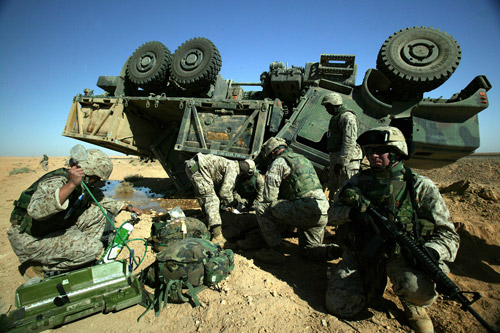
U.S. Marine Corps photo by Lance Cpl. TJ Kaemmerer | Navy Hospital Corpsmen, Marines and Navy Chaplain tend to injured Marines when the seven-ton truck they were driving overturned during a supply convoy to Camp Korean Village in western Iraq.
Those in need of healing must have ways to let go of the terrible emotions trapped in their body. This means giving our service men and women better and more open access to counselling since people need to express their feelings without judgement. And, most importantly, they need to be heard for when we speak we can let go of our feelings. Our pain can be diminished.
During my recovery, I used everything at hand. Perhaps it’s time to embrace new modalities for our soldiers as well. I’ve used Emotional Freedom Tapping (EFT) with huge success to release and clear my body of fear, anxiety, anger and sorrow. Sites abound on the internet to guide us to professionals and also home help, if that’s more convenient. It’s an amazing healing tool, as is acupuncture and Reiki. Both rid the body of negative emotions, which can be held in our meridians. Once released, these channels can operate efficiently, directly affecting well-being. For when the body experiences abuse or trauma, it shuts the episode out and locks the emotions into the body. At the time, it seems like a good coping mechanism.
However, if we remain in this state, the energy circulating around becomes blocked and stagnant and many types of illness can arise. A good energy worker can move and release trapped emotions and balance the body. When I do energy work, I can literally feel the anger releasing as it’s a hot energy. Fear has a feeling as well; it’s a prickly sensation. Remember, we’re more than simply a physical body. We have an energetic body too. Massage can also work by releasing emotions held tightly in the muscles. Breath work can teach how to let go of stored emotions. We can support healing with appropriate herbs and homeopathic mixtures as well. And, hypnotherapy can assist old memories to be acknowledged and finally released from the body. Yoga and meditation are popular because they clear blocked energetic channels.
Others opt for physical exercise because it works by shifting out denser energies. So when we bash the baseball or run through the park our body can more easily release negative, unwanted energies. That’s why we feel much better after exercising. Countless new and very ancient ways exist to heal us from abuse. I suggest more resources and a greater openness be applied to assist our service people. Let’s ask them and their families what they need to heal. For what happens to one person’s son, daughter, husband, wife, mother or father happens to all of us. When one person suffers, we all suffer. As a society we need to understand the profound impact this suffering has on us and bring these issues to the forefront. The time of hiding abuse – any kind of abuse – is over. Truth must prevail for in speaking truth we are all set free.
Humanity has a growing need to be its brother’s keeper. This means utilizing different ways of approaching and solving enduring problems and challenges. Our military service men and women – regardless of what continent they serve in and live on – have suffered in silence long enough. It’s time for us to be there for them and their families. Regardless of whether the wounds are on the outside or inside, they need to be recognized and taken seriously. Although my story differs from that of a returning soldier, the emotions and damage experienced have been similar, and the unwillingness to be heard is the same. I can clear a room simply by saying I was abused. When writing my book, everyone wanted to know the topic, but when I told them, you could hear a pin drop. People just couldn’t handle it. No doubt returning soldiers have similar reactions.
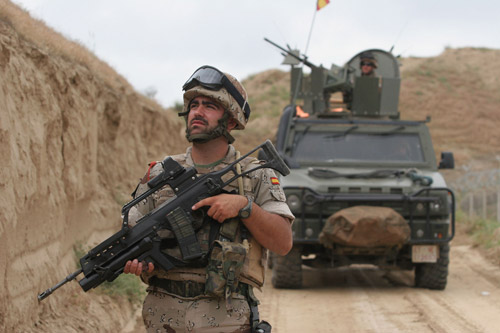
Courtesy Image: Spanish Ministry of Defense | An International Security Assistance Force Spanish patrol in Afghanistan.
Simply put, abuse changes us. Whether suffered in war or at home, one act will alter our body forever unless we get help. No one can change the past, but we can work together to change the future. I urge those dealing with service personnel and their families to throw their net wide as they look for healing solutions. My healing came when I was finally able to express and to let go of my pain because it’s the pain that traps and suffocates us. There’s no shame in having lived as a feeling person and then suffering as a result of those feelings. The shame lies always at the source of the abuse/abuser. There’s also no guilt for we did what we had to do to survive. But, we can let all that go now. To do so, we must first acknowledge the problem, put it at the forefront and actively seek solutions. We must also acknowledge that what worked for our parents or grandparents may not necessarily work for this generation.
The world is changing, probably faster than anyone reading this can remember. Our military service men and women are going to be faced with constant and diverse challenges never before experienced. Whether seeking out terrorists, patrolling a war zone, acting as peace keepers or providing humanitarian assistance, the abusive and damaging environment in which they work will leave its marks. These men and women are not robots. They respond; they feel; they empathize and they cry because we are all creatures of the heart.
What we ask from these young, and sometimes older, men and women is to risk their lives. Just like police and firefighters, they never know whether they will survive the day. The toll on them is beyond measure and their sacrifice great, even if we can’t see it. Those who serve, serve us, and we have a duty and responsibility to serve them back. Let’s open our hearts and pocketbooks to these families so they can have the tools to cope and to find peace in their lives again.
I believe that if I can heal from my traumatic past, hope is available for others. Change is in the air; truth is being shown. We have an opportunity to interact with our Soldiers, Airmen, Marines and Sailors – to hear them, to help them and to provide support to them and their families so they can let go of the past and step into the same bright future we all have a right to expect. We owe it them, ourselves and future generations to protect and care for these people as they have cared for us. Society asks huge sacrifices from our service men and women; it’s time to pay back our debt.

